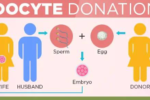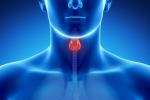Seven Essential Vitamins and Minerals for Pregnant Women

A balanced diet is the best way to receive the vitamins and minerals for women who are expecting. Remember, supplements do not replace a healthy diet but rather ensure that a woman is receiving enough daily nutrients. Eating well during your pregnancy helps properly nourish you and your growing baby. The American College of Obstetricians and Gynecologists (ACOG) suggests key nutrients for a healthy pregnancy.

The American Pregnancy Association as well as ACOG recommend an intake of 1000 milligram of calcium per day for pregnant women of age 20 and above. Not only does calcium help build strong bones and teeth for both yourself and your baby, but it is also important and responsible for blood clotting, muscle contraction and nerve development. Milk is one of the main sources of calcium. Other calcium-rich foods include but are not limited to, dark green leafy vegetables, fish with bones, breads, cereals, broccoli, orange juice and soy milk.
Iron
Iron helps perform a number of functions in a woman’s body and therefore, is a very vital mineral for her. It supplies increased oxygen and nutrients to the developing baby, supports placental function, protects against blood loss during delivery and produces red blood cells. For many pregnant women, regardless of the lifestyle or diet, it is very common to become anemic during pregnancy.
The ACOG recommends 27 mg of iron per day. A few iron-rich foods include vegetables, dry fruits, red meat, spinach, lentils, dried beans and oatmeal. Without adequate iron you are more at risk of delivering a premature or low birth weight baby.
Vitamin C
Vitamin C is necessary to absorb calcium in the body. Moreover, it helps promote healthy birth weight, gums, teeth and bones. The recommended daily allowance for vitamin C is 85 mg. You can find vitamin C in citrus fruits easily available at low prices at the grocery stores. Tomatoes, apples, cabbage, broccoli, asparagus, green peppers, and strawberries are most common vitamin C rich fruits. Another reason for vitamin C is its ability to absorb iron, which is essential for making hemoglobin (the protein found in red blood cells) and myoglobin.
Vitamin D
Pregnancy requirement is 10 mcg. Vitamin D is the second essential ingredient for proper calcium absorption. Sources of vitamin D are found in egg yolk, soy milk, rice, dairy products.
Vitamin D can be found in supplement form or natural form through food and can also be produced when exposed to the sun. As well as a supplement containing vitamin D and a vitamin-rich diet, you should ideally have a target of getting 10 minutes of midday sun.
Additionally, should your baby be low on vitamin D at birth, they may be exposed to rickets, abnormal bone growth, and delayed physical development.
Vitamin B6 and B12

Pyridoxine, or vitamin B6, helps in the formation of red blood cells and helps minimize morning sickness. During pregnancy, a woman should receive 1.9 mg daily. This goal can be reached through consumption of chicken, beef, bananas, liver, tomatoes, carrots and soy beans.
The American Pregnancy Association suggests 2.6 micrograms per day of vitamin B12, which is found only in animal products like meat, fish and eggs. This nutrient helps form red blood cells and maintains the nervous system.
Vitamin A
This is yet another important and vital necessity for pregnant women. Lack of vitamin A may cause premature delivery, eye damage and skin disorders. An excess on the other hand is detrimental also, it may cause birth defects. Hence it is highly advisable that women take nothing above the daily recommended intake from their vitamins, which is 770 micrograms. You can find this vitamin in leafy greens, red peppers, dairy, whole grains, apricots and mangoes.
Folate
Folate is a B vitamin that every cell in the body needs for healthy growth and development. Birth defects often occur within the first 3-4 weeks of pregnancy, therefore, if you take folic acid before and during early pregnancy, it can help prevent birth defects of the brain and spine called neural tube defects (NTDs). The ACOG recommends 600 micrograms daily. During these first 3-4 weeks, it is necessary that you take an additional 400 mcg folic acid supplement as well.
Folate is present in a wide variety of vegetables (such as spinach, asparagus and broccoli) and fruits (such as oranges, bananas and strawberries) as well as legumes (such as chickpeas, dried beans, and lentils).







